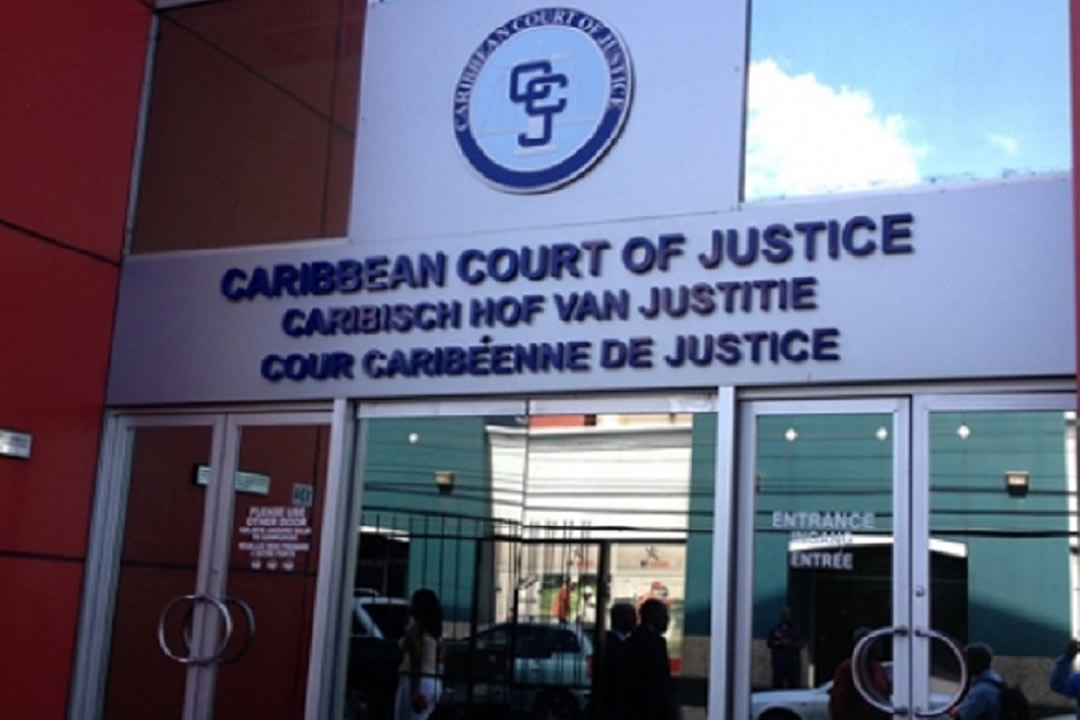 Port of Spain, Trinidad: The Caribbean Court of Justice (CCJ) today dismissed an appeal in a matter brought by Mrs. Deorani Singh, who claimed that the Attorney General of Guyana and the National Industrial and Commercial Investments Limited owed her compensation for a commercial property that had been owned by her husband, Mr. Mohan Singh. The dispute arose after the Government had compulsorily acquired the property almost thirty-five years ago.
Port of Spain, Trinidad: The Caribbean Court of Justice (CCJ) today dismissed an appeal in a matter brought by Mrs. Deorani Singh, who claimed that the Attorney General of Guyana and the National Industrial and Commercial Investments Limited owed her compensation for a commercial property that had been owned by her husband, Mr. Mohan Singh. The dispute arose after the Government had compulsorily acquired the property almost thirty-five years ago.
After his death in 1980, Mrs. Singh, as administratrix of the estate, leased the property to the Guyana Pharmaceutical Corporation Ltd., a state entity, for five years. During the period of the lease, the Attorney General compulsorily acquired the property and filed a motion in the High Court to ascertain the amount of compensation to be paid. In 1987, Justice Pompey ordered compensation of $578,000 and declared the property compulsorily acquired. He also ordered that the amount already collected by the estate should be deducted. There was no attempt made to appeal or set aside the order. In 2003, the property was transferred to the National Industrial and Commercial Investments Ltd, another state entity.
In 1997, fourteen years after the acquisition order had been published, the estate brought a motion in the High Court contending that the estate’s fundamental rights and freedoms had been contravened. The High Court heard the matter in 2002 and judgment was delivered in 2010. The trial judge found that the claimants’ constitutional right to property had been violated and ordered a compensation hearing and in the event of non-payment, that the property should remain in the estate of the deceased.
The Attorney General appealed the 2010 decision and in 2017 the Court of Appeal rendered an oral judgment in which it agreed with the High Court that the estate’s constitutional rights had been breached and awarded GY$30 million in damages. However, the written judgment delivered almost a year later limited the finding of breach and the award of damages solely to the failure of
the State to notify the estate of the sitting of the High Court to determine compensation.
Before deciding on the merits of the appeal, the CCJ highlighted two fundamental issues which were ignored by the courts below: lack of jurisdiction and the collateral attack on the earlier High Court decision. The Court held that the second High Court judge had no jurisdiction to nullify the order of the earlier judgment and it was an abuse of process for the estate to collaterally attack the
order of the earlier judge instead of appealing it or seeking to have it set aside.
The CCJ found that the trial judge ignored Mrs. Singh’s acceptance of the acquisition of the property and payment of compensation, and failed to take account of the impact of the delay. The Court also disagreed with the submission of the estate that the fourteen-year delay in challenging the acquisition did not prejudice the respondents because even when parties do not take the point, lengthy delays also infect a country’s judicial system.. The Court considered the significant delay in this case and cautioned that the judiciary must do its utmost to guard against the fostering of an attitude that there is insufficient concern and commitment to avoiding excessive delay.
The appeal was dismissed. The Court upheld the award of GY$30 million as it was not appealed by the State and provisionally awarded basic costs and disbursements to the Respondents, with permission to apply within 21 days to vary the provisional order.
The judgment of the Court and a detailed judgment summary are available on the CCJ’s website
at www.ccj.org.
Public Education and Communications Unit
Tel: (868) 623-2225 extns. 2296, 2226
Email: [email protected]

